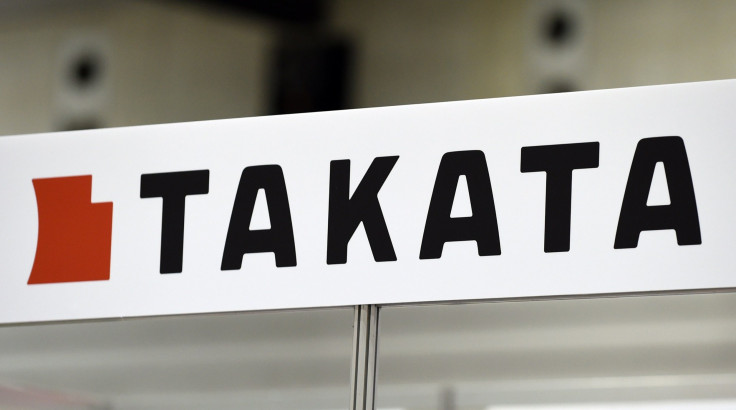Troubled Takata Denies Report On Air Bag Recall Cost Of $24 Billion

Japan’s Takata Corp., which is caught in the biggest recall in automotive history, denied it had estimated the cost of its worldwide recall of its faulty airbags, after a Bloomberg report cited unidentified sources to say the company could face $24 billion in costs.
"We have not announced anything to the effect of the report, and it is untrue that we have calculated the estimated costs (of the recall)," the Tokyo-based company said in a statement Thursday, according to Channel News Asia.
On Wednesday, a source close to Takata told Bloomberg on the condition of anonymity that the company’s recall would involve 287.5 million air bag inflators. The source added that Takata and its automaker clients were still trying to work out how the costs would be shared.
Takata's shares plunged 20 percent after the report but were in positive territory Thursday, closing up 5.8 percent.
So far, the faulty air bags have been linked to 11 deaths and about 100 injuries, with nine of those deaths in the United States. The defective air bags have been known to explode with excessive force and shoot out metal shrapnel into the cabin of a car. The defect is caused by moisture seeping into the inflators, according to Orbital ATK, a Virginia-based research firm hired by a coalition of 10 U.S. automakers to investigate the issue.
Approximately 34 million vehicles are potentially affected in the U.S., and another 7 million have been recalled worldwide already. In November, Takata agreed to pay a fine of $70 million for safety violations to U.S. highways regulators — a penalty that could be increased up to $130 million.
Takata said it was difficult to determine the recall cost because the investigation into the cause of the exploding air bag inflators was still underway.
© Copyright IBTimes 2025. All rights reserved.





















